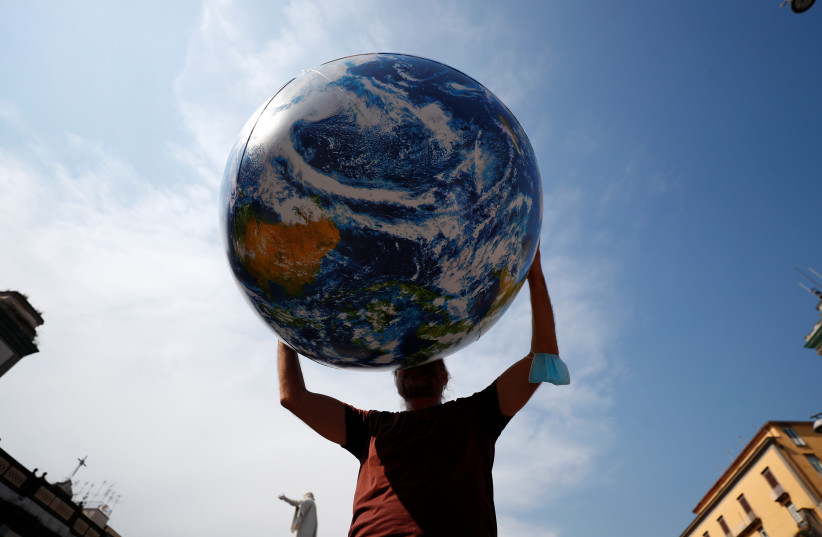The leaders of the Group of 20 major economies have reached an agreement on the wording of the final communique which will be released at the end of their two-day summit, a G20 official told Reuters on Sunday.
Further details were not immediately available.
Diplomats have been negotiating hard-to-bridge differences on how to tackle global warming, with phasing out of fossil fuel subsidies, ending coal power and a firm date for achieving net zero carbon emissions among the main sticking points, sources said earlier on Sunday.
"The fight against climate change is the defining challenge of our times," said Italian Prime Minister Mario Draghi, who chairs the G20 this year, told his fellow leaders as he opened the day's discussions.
"Either we act now, face the cost of the transition and succeed in moving our economy to a more sustainable path or we delay, pay a much higher price later and risk failing."
With drafts of the communique showing scant results in terms of new commitments to curb pollution or greenhouse gases, climate scientists and activists are likely to be disappointed unless late breakthroughs are made.
The G20 bloc - which includes Brazil, China, India, Germany and the United States - accounts for an estimated 80% of the global gas emissions that scientists say must be sharply reduced to avoid climate catastrophe.
For that reason, this weekend's gathering is seen as a vital stepping stone to the UN COP26 climate summit in Glasgow. The gathering will draw almost 200 countries and most G20 leaders are flying there directly from Rome.

"The latest reports are disappointing, with little sense of urgency in the face of an existential emergency," said Oscar Soria of the activist network Avaaz. "There is no more time for vague wish-lists, we need concrete commitments and action."
MID-CENTURY GOALS
A fifth draft of the G20's final statement seen by Reuters on Saturday did not toughen the language on climate action compared with previous versions. In some key areas, such as the need to achieve net zero emissions by 2050, it softened it.
This mid-century target date is a goal that United Nations experts say is needed to cap global warming at 1.5 degrees Celsius, seen as the limit to avoid dramatic climatic changes.
UN experts say even if current national plans to curb emissions are fully implemented, the world is headed for warming of 2.7C.
The United Nations says that would supercharge the destruction that climate change is already causing by intensifying storms, exposing more people to deadly heat and floods, killing coral reefs and destroying natural habitats.
The planet's largest carbon emitter, China, is aiming for net zero in 2060, while other major polluters such as India and Russia have also not committed to the mid-century deadline.
G20 energy and environment ministers who met in Naples in July failed to reach agreement on setting a date to phase out fossil fuel subsidies and end coal power, asking the leaders to find a resolution at this weekend's summit.
Based on the latest draft, they have made little progress, pledging to "do our utmost" to stop building new coal power plants before the end of the 2030s and saying they will phase out fossil fuel subsidies "over the medium term."
On the other hand, they do pledge to halt financing of overseas coal-fired power generation by the end of this year.
Some developing countries are reluctant to commit to steep emission cuts until rich nations make good on a pledge made 12 years ago to provide $100 billion per year from 2020 to help them tackle the effects of global warming.
That promise has still not been kept, contributing to the "mistrust" that UN Secretary-General Antonio Guterres said on Friday was blighting progress in climate negotiations.
World leaders will kick start COP26 on Monday with two days of speeches that could include some new emissions-cutting pledges, before technical negotiators lock horns over the rules of the 2015 Paris climate accord.
Any deal is likely to be struck hours or even days after the event's November 12 finish date.
